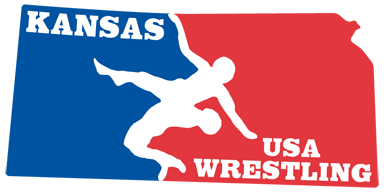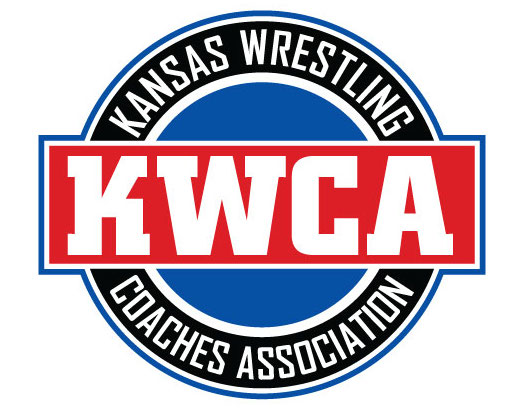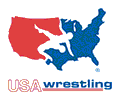What to and not to say
Print
By Matt Krumrie Special to USA Wrestling | Sept. 04, 2014, 12 a.m. (ET)
Parental support can be key to the success of any young athlete, wrestlers included. But research shows that when parents unleash nervous energy through verbal and non-verbal communication during a wrestling match, it can have a negative effect on the wrestler—even if the message is positive.
That's why parents should never coach from the stands, says Jordan Krebs, head coach of the Tippecanoe Red Devil High School wrestling team in Tipp City, Ohio.
"It is obvious that when it comes to the success of a wrestler, parents are a very important piece," says Krebs. "However, there comes a point when parents need to realize that they are no longer needed as a coach and serve a much different and more important role as a support system for their wrestler. When a wrestler takes the mat they want to hear the same voice that has been coaching them throughout the week in practice.”
More than 70% of kids quit sports by the age of 13 because of parental pressure, performance anxiety, and injuries. - Luis Fernando Llosa
For parents in any sport, it’s hard to sit in the stands and relax, especially in an intense, grueling sport like wrestling. Many parents seek a release from anxiety by yelling and screaming from the stands.
Well-meaning parents say and do things because they think it's being helpful, says Dr. Alan Goldberg, a sports psychologist who is also director of Competitive Advantage, an Amherst, Massachusetts-based performance consulting firm. But athletes actually achieve peak performance when they are relaxed, focused, and not worrying about what mom and dad think, says Goldberg.
“If an athlete is worried about mom or dad being upset or disappointed while competing, it really has a great affect on the athlete’s performance,” says Goldberg. “It's the biggest cause of performance problems that exist in youth sports.”
Luis Fernando Llosa co-authored the book Beyond Winning: Smart Parenting in a Toxic Sports Environment and helps run the Whole Child Sports website, created to raise awareness about key issues related to youth sports. In his research, Llosa discovered that more than 70% of kids quit sports by the age of 13 because of parental pressure, performance anxiety, and injuries. Additional research discovered youth athletes—including wrestlers—feel embarrassed when they hear a parent yelling or screaming during a match, even if it is encouraging.
"It annoys them," says Llosa. "When it's negative, it demoralizes them. They try to block it out as much as they can."
When parent yell out instruction or "advice," kids hate that, says Llosa. He adds that what parents suggest often conflicts with what the coach has told the athlete. As a result, the child feels torn between the parent and the coach, which makes the child feel confused and fearful, hampering development and performance. Self confidence takes a big hit in such cases, he says.
Mike Clayton, Manager of USA Wrestling's National Coaches Education Program, says wrestlers need to find an optimal performance zone to compete at their best. This zone is typically somewhere between 3-7 on a scale of 0 to 10, where zero is no arousal and 10 is the maximum. If external parental pressure causes a wrestler to go from a level of 6 to 8 or 9 then the parent’s actions are hindering the athlete’s ability to perform at his or her best, says Clayton.
Of course, human emotions are natural and will occur regardless of how we pre-plan for them, acknowledges Clayton. "Heart rates at these levels pushes chemicals into our blood stream that make us seem a bit unreasonable at times," he notes.
To combat these emotions, Goldberg says young athletes can sit down with their parents before a public competition and say this: “I want to bring up something that's important. I am not trying to be disrespectful and I know you are both loving parents. But I need you to know what you are doing isn't helping me. It's not calming me down. It's actually making me nervous and distracting me."
By the same token, parents can sit down with their child and ask these key questions: "What do I say or do that you wish I would stop? What are the things I do that you would like me to continue? And what am I not doing that you wish I'd start doing."
All this should be done in a calm, non-defensive manner to be most effective, adds Goldberg.
As for coaches, they should clearly communicate the expectations and guidelines for parental behavior at practice and during competition before the season starts, says Krebs. For instance, Tippecanoe Red Devil High School has an athletic department communication guide for parents and coaches that clearly defines the role of coaches, athletes, and parents. There are also tools available that can help foster discussion about the best ways to interact before, during, and after competitions, such as the Liberty Mutual Insurance Play Positive program.
Josh Parks, a volunteer assistant coach with the North Wildcats Youth Wrestling Club in Davenport, Iowa, says there are instances where the roar of the crowd (such as the crowd yelling "two" when the wrestler gets a takedown) can motivate and inspire.
And while he encourages all parents to cheer for every kid—not just their own—no child needs a coach in the stands. "Negative remarks towards their child, opponent, or the ref are not taken lightly," says Parks. He counsels wrestlers who feel their parents may get too excited or angry during a match to tell those concerns to the coach. That way, the coach can speak to the parent about avoiding that behavior without forcing the child to have that difficult conversation.
Parents can also work together to promote a positive and respectful fan environment during a match, says Llosa. Poor parental behavior can tarnish an entire program and overshadow a team that is works hard and plays fair..
Kids forget outcomes quickly, says Llosa. Win or lose, they move on. But they may never forget an embarrassing moment caused by one of their parents acting out during a match.
•
Michelle Kistler
One of the worst that I hear parents yelling at their kids when the kid is stuck on the bottom: "GET UP!! GET UP!!" As if the wrestler doesn't know and isn't already trying to! So distressing for the wrestler to hear, let alone not at all constructive.
Reply •
• 4 • 11 hours ago
•
Donna Derosier • University of Maryland
I can yell just about anything my kid doesn't hear me anyway but he says sometimes when he is stuck and I'm yelling to get up he needs that last bit of push to help him get out and most of the time it works they need a rush of adrenaline sometimes too and when it comes from a parent that believes in them they feel that as well . It's not always negative depends on your relationship with your child or young athlete And in some competitions you are in the coaches chair for them you ARE THE coach . So like I said depends on the athlete the situation and the relationship.ship between you
Reply •
• 1 • 4 hours ago
•
Christie Micek Luther • Works at Public Servant
My Wrestler has informed me that Go! and Get Him! are NOT effective coaching phrases anyway. They are fine for cheering though.
Reply •
• 1 • 12 hours ago
•
Lance Jaeckel • Johnson Creek High School
My son is 12 now, and it's a constant learning process for me being a parent and coach
To try and control my emotions.
Reply •
• 1 • 10 hours ago
•
Shannon Wright Santee • Loganville, Georgia
Interesting article
Reply •
• 1 • 12 hours ago
•
Excelsior Springs Youth Wrestling
Good Read.
Reply •
• 1 • 5 hours ago
•
Anthony Damiano • REAL ESTATE INVESTOR ADN MENTOR
www.homeforbacktaxes.com at Business Owner
I truly think this is a different situation with each family. NOT every child thinks like this. I have asked both my boys and they tell me they really like when I'm there coaching them because it helps them. You say you hate when a parent yells get up, but at younger ages kids sometimes forget what to do and the encouragement of GET UP!! In many cases my boys have got stronger and got up!
I think parents are not competitive enough these days, they say all kids are the same and they are NOT. There will be winners in life and losers, BROKE or WEALTHY.. Each child is different and you have to adapt to how your kids learn and when to push them because they don't realize their own abilities at times. I have pushed my boys at things that they first cried at and now are GREAT at..My boys are 6 and 4 and they are being taught how to succeed at life and EVERYTHING they do.
I'm a VERY successful person and I did NOT get here by not pushing MYSELF and that was ONLY because my father was murdered at the age of 12 or else I would have LOVED for my father to have pushed me to where I am at now. NOT EVERYONE IS THE SAME and there are MANY kids who want their parents to help coach them in EVERYTHING, its going to depend on the type of relationship you build with your kids!!
Reply •
• 10 hours ago
o
Bobby Firestone • Woodbridge, New Jersey
you might want to read this article again. I don't think you understood it. It wasn't about "pushing" your kids.
Reply •
• 1 • 9 hours ago
o
Stephen Steele • Top Commenter • Journalist at UCA News
I would have hated having this guy as a father
Reply •
• 2 • 6 hours ago
•
David Grim • Works at East Penn Manufacturing Co.
Thanks for an informative article. As an 8th grader, my son will be entering his 9th year of wrestling this fall. Over the years, I've been trying to control my level of pre-match anxiety and excitement in an effort to not reflect it onto my son. This can be quite a challenge. I've found that a few calm, reassuring words before and after a match are all that's needed most times. Sometimes I can even squeeze in a hug after a very competitive match, win or lose.
Reply •
• 7 minutes ago
•
Angela Carrillo Chason • NJROTC Instructor at John Marshall High School - San Antonio
Communication with your child is key. When comments strike me as negative then I can only imagine what that athlete might be feeling; not pushed, not positive. At a recent Austin tournament there were some comments from the coach/parent that went beyond "coaching". I felt bad for the young man which prompted me to be a better supporter of my son.







